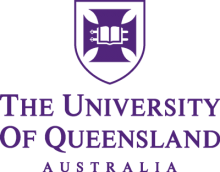Indonesia could be the next growth hotspot for international branch campuses, after the details of a seven-year-old law that has finally been ratified were released.
The ministerial regulation, disclosed recently after being signed off in late October, allows overseas universities to operate in special economic zones – with a satellite township on Jakarta’s outskirts considered the most likely site – subject to ministerial approval.
They will be authorised to employ both foreign and local staff but will need to partner with Indonesian universities and teach four mandatory subjects: citizenship, religious instruction, Indonesian language, and Indonesian state ideology, or Pancasila.
They will also need to be ranked among the world’s top 200 in university or subject league tables.
Universities have long anticipated the decree, which gives effect to legislation passed in 2012. The International Education Association of Australia said institutions had done “a great deal of preparatory work” in the meantime.
“The devil will now be in the detail when it comes to how quickly they can modify their curriculum and course design to meet local requirements,” said executive director Phil Honeywood. “Some of our universities, the ones that have already made big investments in Indonesian education, are better placed than others to implement things quickly.”
But they may be forced to wait longer, with Indonesia now embroiled in a general election campaign.
While President Joko Widodo and higher education minister Mohamad Nasir support bringing in foreign universities, elements of the governing coalition do not. Parliamentary speaker Bambang Soesatyo has opposed the move, citing competitive threats to domestic universities, while the opposition coalition’s attitude to foreign campuses is unclear.
Mr Nasir told a press conference last January that the universities of Melbourne and Queensland were among 10 foreign institutions that had expressed interest in operating in Indonesia. But neither institution would confirm that talks with Jakarta had taken place.
Melbourne told Times Higher Education that, while it had identified Indonesia as “one of several priority countries” for academic engagement, it had not yet formed a view on setting up there as a foreign university. Queensland said that it had “no firm plans at this time”.
Other Australian providers closely engaged with Indonesia include Monash University, whose Indonesian-focused activities include student exchanges, scholarships, research collaborations and an academically focused English bridging programme at Jakarta’s Mercu Buana University.
Andrew MacIntyre, an Indonesia specialist recently recruited as senior pro vice-chancellor for South-east Asia partnerships, said that Monash’s commitment to the country was long-standing. “It’s looking closely at ways it can develop its contribution to Indonesia,” he said.
Kevin Evans, Jakarta-based director of the Australia-Indonesia Centre, said that universities would need to assess the financial and strategic viability of setting up branches in Indonesia. “It’s exciting but there’s a question as to whether bricks and mortar is the ideal way to go any more – there are so many other ways you can export your services without having a physical investment.”
International education consultant Michael Fay said that with many talented students being lured to Western universities’ branch campuses in Malaysia and Singapore, Indonesia needed to allow in foreign universities. And with space running short at home, Australian universities wanting to increase and diversify their international student numbers needed to consider operating overseas.
But Mr Fay conceded that such a move was a financial gamble. “There’s no exemplar out there of an international university with a campus in Indonesia,” he said.
Register to continue
Why register?
- Registration is free and only takes a moment
- Once registered, you can read 3 articles a month
- Sign up for our newsletter
Subscribe
Or subscribe for unlimited access to:
- Unlimited access to news, views, insights & reviews
- Digital editions
- Digital access to THE’s university and college rankings analysis
Already registered or a current subscriber? Login










